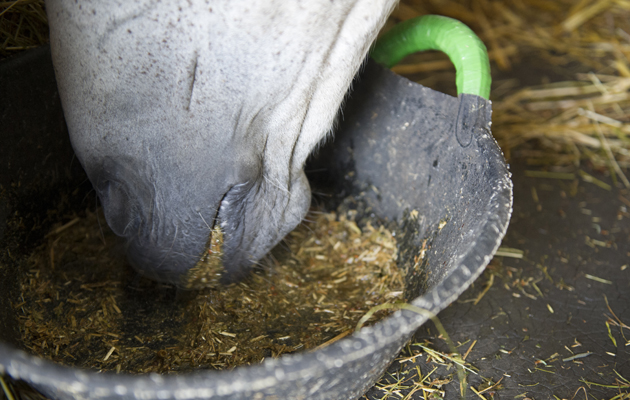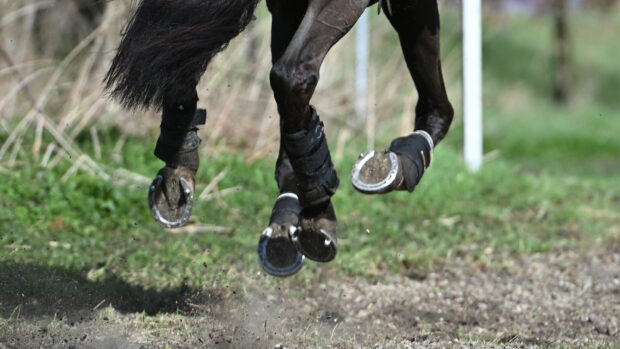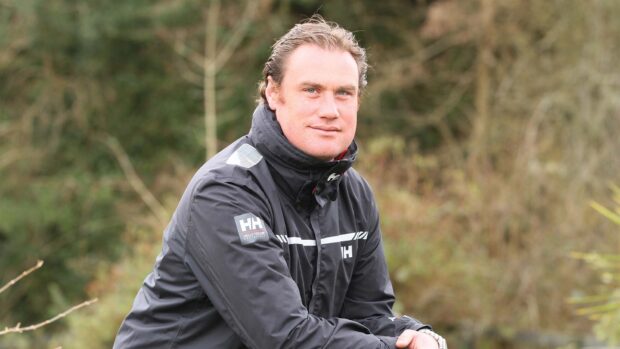Society will not forgive us if we fail to act now, the equestrian sector has been warned, to take responsibility to ensure the welfare of horses.
World Horse Welfare chief executive Roly Owers made a call for “systemic change” at the charity’s annual conference yesterday (13 November), the theme of which was “who is responsible?”
Topics covered by a stellar line-up of speakers and panellists ranged from animal hoarding to equine crime to the effects of badly fitting bridles.
Opening the conference, charity chairman Michael Baines said: “In a world where every activist is talking about rights, we’re talking about responsibility. I can’t help thinking that if we all thought about responsibility, the world would be a better place.”
Mr Owers said that the topic of responsibility is a “burning topic, and so it should be”.
“It’s a simple word with complex implications for our planet, our communities, our sector and our own lives; as Abraham Lincoln said, you can’t escape the responsibility for tomorrow by evading it today.”
Mr Owers said there is no doubt the world is experiencing a “significant” shift in morals and values, one that will only continue.
“So what do we mean by responsibility?” he said. “It’s a combination of personal and collective duty, and it’s certainly not always someone else’s responsibility. We all have roles to play in this fragile web of the equine world and beyond.
“Collectively and personally, we’re all responsible for what we do, and what we don’t do.”
Mr Owers said an example of collaborative responsibility is organisations’ recognition that they need to work together, which is not often easy, “but it works”.
He cited the continuing horse crisis, stating that enforcement of the Animal Welfare Act is not working, as responsibility has effectively been passed to charities, and that the local authorities who are responsible have limited resources.
“As a nation, do we need to accept that too many horses are being bred, and that euthanasia can and should be a welfare option if there’s nowhere that can take them?” he said. “This could be a more humane, albeit difficult decision.”
Mr Owers said there must be a way of regulating dealers, and breeders, and he “entreats others to work with us” on a solution. He said there is a lack of accountability for those who breed and deal irresponsibly, as well as those who abuse horses.
He said horse sport is “very much in the spotlight” when it comes to responsibility, and that there is growing agreement that this responsibility applies for a horse’s lifetime, which has an impact on equestrianism’s social licence to operate.
He spoke of the necessity to base decisions on robust scientific evidence, and that investing in more research is crucial, but that we must “never forget our experience and common sense”, adding: “If it looks wrong and feels wrong, it probably is.”
“We all know a little knowledge can be a dangerous thing,” he said, adding that social media can be a force for good if used responsibly, but that it can be “hugely disruptive if used irresponsibly”.
Continues below…

Warning as well-meaning owners ‘make horses’ lives a misery’
Over-rugging and rider and horse obesity are among the issues affecting horses in this country, World Horse Welfare has warned

‘They’re getting fatter and fatter’: Vet’s warning over obesity-related equine deaths
‘As a rule, you’ll get much more criticism on a livery yard if you can see ribs than if your

Subscribe to Horse & Hound magazine today – and enjoy unlimited website access all year round
Mr Owers said that, for example, while the public calling welfare lines is crucial, others share pictures “far and wide” online and urge others to flood lines with calls. The effect can be that genuine calls cannot get through, and the owner of the horses in question can move them out of reach.
“I implore you, before you post about a case, ask yourself how sharing on social networks can help the horses concerned,” he said.
“We’re all part of a fragile web of connection and responsibility, relying on each other to meet our responsibilities to make our precious equine sector work.
“We can act, or bury our heads in the sand and pass the buck. If we want to keep pace with our changing society, and address today’s systemic challenges, something has to change and part of that is us. Small steps and partnerships around shared goals and aspirations can make a world of difference.
“The future is in our hands; the question is, can we meet President Lincoln’s challenge and fulfil our responsibilities today for the betterment of tomorrow?
“I really hope so, because society will not forgive us if we don’t act now.”
For all the latest news analysis, competition reports, interviews, features and much more, don’t miss Horse & Hound magazine, on sale every Thursday.




